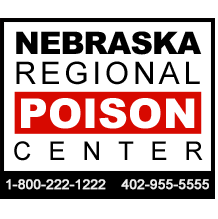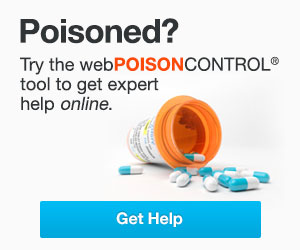Be safe in the Season of Fall
The Fall season is here! The Nebraska Regional Poison Center would like to alert you to some potential hazards associated with these months. We hope this will help reduce accidental poisonings in both adults and children. Remember that prevention is the best antidote for poisonings.
Carbon Monoxide
Carbon monoxide is a dangerous gas because it is colorless and odorless. Victims may be unaware of its effects until they are overcome by the fumes. Cars with faulty mufflers may leak carbon monoxide. This can be especially dangerous in the cool weather when cars are operating with windows closed. Passengers in the back seat, usually children, most often are affected first. Early symptoms of carbon monoxide poisoning are headache and nausea. If these symptoms occur, take the victim to an Emergency Department. Carbon monoxide poisoning can also occur in the following situations: improperly functioning home heating systems with furnaces, wood stoves used in poorly ventilated rooms, or burning charcoal indoors. Carbon monoxide detectors are recommended in every level of your home. Detectors can save lives.
Antifreeze
Many antifreeze contain up to 95% ethylene glycol. If swallowed, small amounts of this chemical can cause severe illness and large amounts can lead to death. Windshield washing fluid may contain methanol as well as ethylene glycol. This chemical can produce blindness if ingested. Antifreeze is marketed in attractive containers, has a sweet taste and a pretty color. Be sure to store these containers in locked cabinets. Never place antifreeze in an old food container for storage. Rinse empty containers thoroughly and recap before discarding. If you suspect that someone has ingested antifreeze, call the Nebraska Regional Poison Center immediately.
Plants and Berries
Both indoor and outdoor plants may be poisonous. It is helpful to know the names of your house plants and the plants and bushes in your yard. Your local nurseries may be able to assist you in identifying them. If a child does eat a berry, an outdoor mushroom, or a part of a plant, call the Nebraska Regional Poison Center. We will ask you to identify the plant before we can make appropriate treatment recommendations.
Peppers
During this time of the year many families take to their kitchens and begin canning some of their favorite foods to enjoy during the winter months. But special care must be taken when handling hot peppers such as jalapeno, cherry, bell, cayenne, and chili. Capsaicin, the oily chemical irritant found in these peppers, can cause irritation, redness and burning pain when handled. The oil is spread easily, so avoid touching areas such as the eyes and face. The best prevention is to wear rubber gloves while canning. If you develop skin irritation while canning, call the Nebraska Regional Poison Center.
Salt
This is used on driveways, sidewalks and porches for traction and de-icing. Salt can be poisonous to young children who may ingest toxic amounts. Like any other poison, it should be stored out of reach of children.


Leave a Reply
Want to join the discussion?Feel free to contribute!